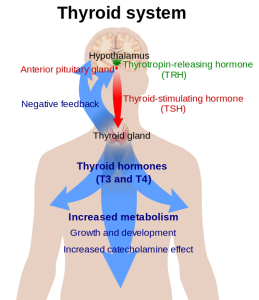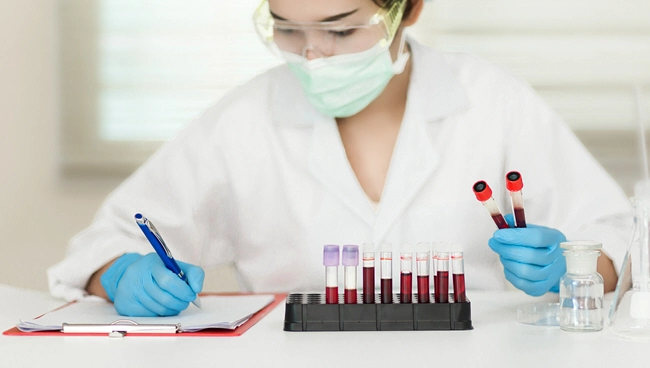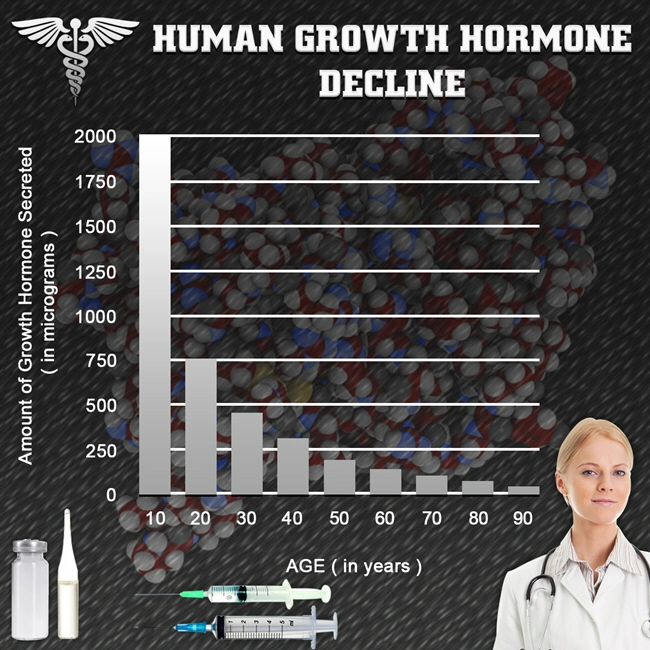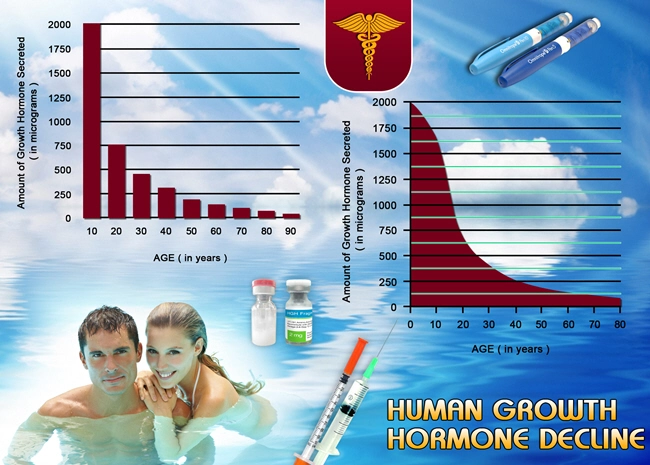
 At our clinic, hormones are our expertise and we need to warn you of the increasingly diagnosed condition of hypothyroidism in the United States. The most common being, Hashimoto’s hypothyroidism. What it all boils down to is a hormone imbalance, but it sometimes can be even more complex than that.
At our clinic, hormones are our expertise and we need to warn you of the increasingly diagnosed condition of hypothyroidism in the United States. The most common being, Hashimoto’s hypothyroidism. What it all boils down to is a hormone imbalance, but it sometimes can be even more complex than that.
Unfortunately, it’s estimated that 20 million people in the United States have hypothyroidism with the majority being women. In fact, 1 in 8 women will develop a thyroid disorder in their lifetime, and approximately 10 times more women than men develop the condition. These are some scary statistics! This is why it is imperative that you act now with preventative measures.
Where Hypothyroidism Begins: The Thyroid Gland
The butterfly-shaped thyroid gland is where it all starts. Your thyroid sits in front of your windpipe in your neck, secreting hormones such as thyroid hormone – a hormone that regulates metabolism. There are different types of thyroid hormones, such as T3 and T4. T4 is considered a storage form of thyroid hormone and once it is released into the blood stream, it is converted into the active form called T3.
All of this hormone production is regulated by thyroid-stimulating hormone (TSH). This hormone is actually secreted by the pituitary gland, another important part of the endocrine system, that is located at the base of the brain.
If the thyroid is not producing enough thyroid hormone, the pituitary reacts to this via increased TSH production. The entire endocrine system is essentially one big feedback loop of hormone production regulation.
It is Imperative that Thyroid Hormones Stay Within Normal Range
The actual definition of hypothyroidism is when thyroid hormone levels are too low and outside of the normal range. Hyperthyroidism is the opposite – when levels are too high outside of the normal range. Hypothyroidism is the more common diagnosis. It is easy to get your thyroid levels checked via a blood test. The normal range for TSH is typically considered 0.4 to 4.0 milliunits per liter (mU/L), but doctors will also test for T3 and T4 as well.
Since getting a blood test is not terribly difficult, it’s disheartening to know that many people that have symptoms of hypothyroidism go undiagnosed because they either do not seek treatment or are not properly evaluated and diagnosed. It is especially scary for pregnant women because having a thyroid condition can result in a lower IQ in the newborn and if really severe, cretinism can happen, which results in many deficits including mental retardation.
 Symptoms of Hypothyroidism
Symptoms of Hypothyroidism
The symptoms of hypothyroidism can be associated with many other medical conditions, which is another reason why it can go underdiagnosed. Here are the main symptoms:
- weight gain
- constipation
- fatigue
- sensitivity to cold
- facial puffiness
- dry skin
- hoarseness
- aches
- weakness
- hair loss
- depression
- high cholesterol
- slow pulse
- memory/cognitive issues
Causes of Hypothyroidism
Interestingly, the most common cause of hypothyroidism is a simple one: lack of iodine. The T3 and T4 hormones are actually composed of iodine molecules making it imperative that we get enough of this naturally occurring element.
It is found in varying amounts in our soils. When food is grown in iodine-poor soils (which is very common these days due to poor farming techniques and over-farmed soils), this then results in low iodine levels in the food. It’s a good thing that iodine is added to most of our salts these days that we purchase at the grocery store. But is this enough? Probably not in underdeveloped countries where salt is most likely not available.
Other causes of hypothyroidism include surgery or radiation that was used to treat hyperthyroidism or thyroid cancer. The thyroid can also be affected by medications such as lithium, but this is rare.
 Hashimoto’s Hypothyroidism – Another Main Cause of the Condition
Hashimoto’s Hypothyroidism – Another Main Cause of the Condition
In developed countries, the more common cause of low thyroid hormone production is actually an autoimmune disease, called Hashimoto’s thyroiditis. As it is an autoimmune condition, the immune system is wrongly attacking and damaging the thyroid gland, like it is a foreign invader – leading to all kinds of problems, as you can imagine. In fact, 90% of cases of hypothyroidism are caused by Hashimoto’s.
If a patient ends up having Hashimoto’s, which, if you think you have a thyroid condition, definitely be screened for Hashimoto’s as well, because there is a good chance that other autoimmune diseases may also develop.
What is scary is that at one doctor’s practice, almost 50% of their Hashimoto patients also tested positive for neurological antibodies.
It is important to be preventative about this disease because every cell in the human body depends on thyroid hormones to function properly. So many things can go wrong when thyroid hormones are out of balance including:
- Slow brain function and accelerated brain degeneration: brain fog, fatigue, depression, low motivation are some of the first signs
- Osteoporosis: bones need thyroid hormones to regulate calcium and form bone tissue
- Gut issues: low thyroid hormones low gut motility leading to chronic constipation. This increases the chances of developing a gut infection, inflammation, and food intolerances
- Low sex hormones: One hormone imbalance can lead to another hormone imbalance – prevention of the synthesis of estrogen, progesterone, and/or testosterone. This can cause fertility problems, low sex drive, and poor sperm count, and impotence.
- Liver and gallbladder issues: We need both of these organs to detoxify our bodies. Low thyroid hormones can lead to gallstones.
- Weight/Fat gain: As we said before, thyroid hormones regulate metabolism and with low thyroid hormones, metabolism is slowed significantly. This shuts down cellular receptor sites for fat-burning hormones (such as human growth hormone) and stalls muscle building.
- Low blood sugar: low thyroid hormones causes slowed uptake, poor utilization, and inefficient elimination of glucose by our cells leading to blood sugar crashes. Symptoms of this include brain fog, irritability, light-headedness, and adrenal fatigue.
- Bad cholesterol: Hypothyroidism leads to higher triglyceride levels and high LDL (bad) cholesterol because of the slowed metabolism leading to increased fat production.
- Inhibited stomach acid production: Hypothyroidism causes low stomach acid leading to several gut disorders and poor protein absorption.
- Heart issues: Low thyroid hormones can cause high levels of homocysteine, an amino acid that is associated with increased risk of heart disease, dementia, and other neurodegenerative diseases.
Do you see now why the thyroid gland is so important? And you should be getting tested for this regularly?
Diagnosis and Treatment of Hypothyroidism
To make an accurate diagnosis of hypothyroidism, TSH, T3, and T4 levels should be tested via a blood draw. The patient should also be screened for Hashimotos’ by testing for thyroid antibodies.
In classic hypothyroidism, the T4 level is low and the treatment is the replacement of T4 with daily levothyroxine pills. When TSH is elevated, but T4 levels are normal, this makes treatment a bit more complicated.
 Prevention of Hypothyroidism is Key
Prevention of Hypothyroidism is Key
It is best to just prevent this disease from developing in the first place either by ensuring adequate levels of iodine in your diet or taking steps to prevent autoimmune diseases from starting. To ensure adequate iodine levels, either use iodized salt, take iodine supplements or eat seaweed on a regular basis.
Sea salt, kosher and Himalayan salt does not contain iodine. Avoid kelp because it has too much iodine and hijiki seaweed can be contaminated with arsenic.
In addition, avoid animal products to prevent Hashimoto’s thyroiditis. Dr. Neal Barnard, of the Physician Committee for Responsible Medicine, states, “People who avoid meat, dairy products, and eggs have been shown in research studies to have the lowest risk of hypo- or hyperthyroidism.” It has been shown that people who eat plant-based diets have significantly lowered rates of autoimmune diseases.
In fact, Dr. Barnard has seen several patients, who switch from animal-based to plant-based, cut back on their thyroid replacement dose and sometimes even cure their hypothyroidism altogether.
References
Contact Us Today For A Free Consultation
Dear Patient,
Once you have completing the above contact form, for security purposes and confirmation, please confirm your information by calling us.
Please call now: 1-800-380-5339.
Welcoming You To Our Clinic, Professor Tom Henderson.

- New Research on Hormone Replacement Therapy [Last Updated On: December 29th, 2024] [Originally Added On: March 12th, 2021]
- LCN2 Hormone Suppresses Hunger and Stops Cravings! [Last Updated On: January 27th, 2025] [Originally Added On: April 7th, 2021]
- Melatonin: The Body's Master Clock [Last Updated On: December 27th, 2024] [Originally Added On: April 8th, 2021]
- The Importance of Luteinizing Hormone [Last Updated On: December 28th, 2024] [Originally Added On: April 11th, 2021]
- Andropause From The Wikipedia Encyclopedia [Last Updated On: December 29th, 2024] [Originally Added On: April 12th, 2021]
- Finally Explained: The Mysterious Pineal Gland [Last Updated On: December 28th, 2024] [Originally Added On: April 30th, 2021]
- Hormone Therapy May Help Cut Alzheimer's Risk [Last Updated On: November 24th, 2024] [Originally Added On: May 18th, 2021]
- Androgel : Men Getting Their Mojo Back! [Last Updated On: June 3rd, 2024] [Originally Added On: May 21st, 2021]
- HGH Secretagogue [Last Updated On: November 24th, 2024] [Originally Added On: May 22nd, 2021]
- Hormone Replacement Therapy Safe, Study Suggests [Last Updated On: June 8th, 2024] [Originally Added On: May 24th, 2021]
- The HGH Recommended Medical Dosage - The Importance of Blood Work [Last Updated On: November 24th, 2024] [Originally Added On: May 25th, 2021]
- A Toxic Hormone is Altering the Sex and Reproduction of Aquatic Life in United States Streams [Last Updated On: November 24th, 2024] [Originally Added On: August 16th, 2021]
- New Research: Cognitive Therapy Could Reduce Menopausal Hot Flashes [Last Updated On: November 23rd, 2024] [Originally Added On: August 16th, 2021]
- Heart Benefits From Hormone Replacement Therapy? [Last Updated On: November 22nd, 2024] [Originally Added On: August 18th, 2021]
- Risks of Hormones in Early Menopause Challenged [Last Updated On: November 21st, 2024] [Originally Added On: August 24th, 2021]
- Comprehensive Hormone Replacement Therapy with Tesamorelin [Last Updated On: May 29th, 2024] [Originally Added On: September 18th, 2021]
- Early Hormone Replacement Therapy May Lower Alzheimer Risk [Last Updated On: November 14th, 2024] [Originally Added On: October 25th, 2021]
- Stimulate HGH: Growth Hormone Secretagogue: Sermorelin Acetate [Last Updated On: November 20th, 2024] [Originally Added On: October 25th, 2021]
- Growth Hormone Therapy Reverses Biological Age In Groundbreaking Study [Last Updated On: November 11th, 2024] [Originally Added On: October 25th, 2021]
- Estrogen HRT May Reduce Breast Cancer Risk [Last Updated On: November 9th, 2024] [Originally Added On: October 26th, 2021]
- Hormone Replacement Therapy is Safe [Last Updated On: November 15th, 2024] [Originally Added On: October 26th, 2021]
- The Benefits of IGF-1 [Last Updated On: November 10th, 2024] [Originally Added On: October 26th, 2021]
- Insulin-Similar Growth Factor Benefits [Last Updated On: November 16th, 2024] [Originally Added On: October 26th, 2021]
- Growth Hormone Dosage [Last Updated On: November 8th, 2024] [Originally Added On: October 26th, 2021]
- Growth Hormone Sprays [Last Updated On: November 7th, 2024] [Originally Added On: October 26th, 2021]
- The Best Ways to Boost Growth Hormone [Last Updated On: November 13th, 2024] [Originally Added On: October 26th, 2021]
- Growth Hormone Explained [Last Updated On: November 17th, 2024] [Originally Added On: October 26th, 2021]
- What Men Need To Know About Testosterone And Growth Hormone [Last Updated On: November 5th, 2024] [Originally Added On: October 26th, 2021]
- Growth Hormone and Gene Therapy [Last Updated On: November 6th, 2024] [Originally Added On: October 26th, 2021]
- Growth Hormone and the Law [Last Updated On: November 4th, 2024] [Originally Added On: October 27th, 2021]
- Growth Hormone and the Hypothalamus Gland [Last Updated On: November 3rd, 2024] [Originally Added On: October 27th, 2021]
- Growth Hormone and Testosterone Replacement Therapy [Last Updated On: January 2nd, 2025] [Originally Added On: October 27th, 2021]
- Growth Hormone and Pneumonia [Last Updated On: November 2nd, 2024] [Originally Added On: October 27th, 2021]
- An Introduction to Growth Hormone [Last Updated On: November 1st, 2024] [Originally Added On: October 27th, 2021]
- General Physician Versus Hormone Specialist – Some Symptoms Require a Specialist to Heal [Last Updated On: August 5th, 2024] [Originally Added On: March 18th, 2022]
- Hormone Impacts And Function Of HGH [Last Updated On: December 20th, 2024] [Originally Added On: July 10th, 2022]
- Cheaping Out on HGH Therapy – JUST DON’T DO IT [Last Updated On: August 18th, 2024] [Originally Added On: July 12th, 2022]
- Slow Aging with Growth Hormone [Last Updated On: June 18th, 2024] [Originally Added On: July 17th, 2022]
- Hormone Therapies: How They Have Evolved and Are Evolving [Last Updated On: August 9th, 2024] [Originally Added On: February 10th, 2023]









